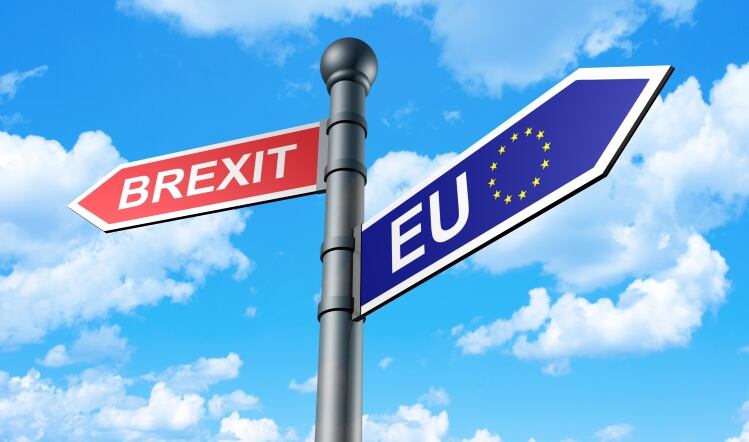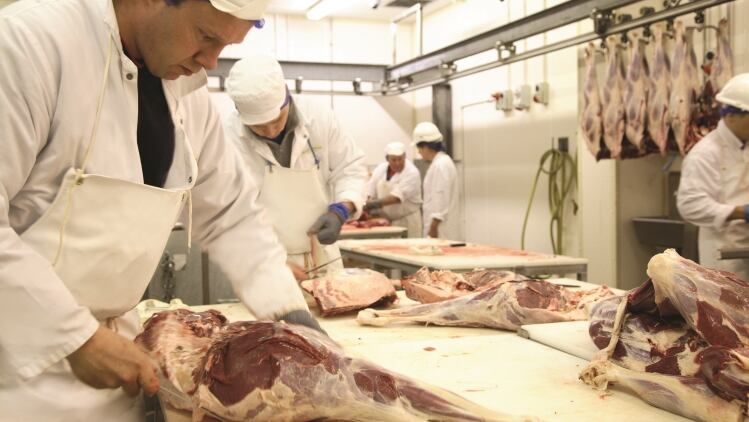UK export health certificates being completed for exports to the EU are set to increase by a third as new legislation makes certain food products ‘unviable’ as exports, claims the Institute of Export and International Trade.
From 21 April, goods containing meat, pasteurised milk, or egg-related contents from non-EU countries will require vet-stamped certification to be exported to the EU. The rule will also apply to trade between Great Britain and Northern Ireland.
The rule-change would mostly affect cover multi-ingredient products such as chocolate bars and curry sauces. Some products – such as cheese and onion crisps, which contain cheese powder – would require pages of 'attestation' documents detailing the source of the cheese used to flavour the crisps, reported the institute.
The new rules would mean a 36% increase in health certificates, which would particularly impact trade with Ireland worth up to £1bn a year, according to the Chilled Food Association.
Meanwhile, the UK Government announced changes on 11 March to some requirements for imports from the EU into Great Britain. It postponed the dates at which some checks will come into force to minimise industry disruption.
Export health certificates
Requirements for health certificates for imports of live animals, animal products and high risk food and feed not of animal origin into GB will be introduced in phases from October 2021 to March 2022. Full Government details of the changes are available online.
FDF chief executive Ian Wright said: “The FDF welcomes this sensible and pragmatic step to ensure that food and drink continues to flow, and allows manufacturers access to the inputs and ingredients they need in order to continue producing the full range of products for UK shoppers and consumers.
“Government must now use this time to do everything it can to support UK food and drink exporters who continue to face huge difficulties moving goods into the EU. They must work constructively with the EU to address barriers to trade by improving the implementation of the trade agreement and streamlining processes.”
‘Perilous position’
However, not everyone was so pleased. The managing director of a leading provider of Official Veterinarians and Meat Hygiene Inspectors strongly criticised the Government’s decision.
In a statement, Diederick Opperman, managing director of HallMark Veterinary and Compliance Services said the announcement had placed his company in ‘an extremely perilous position.’
“Unlike our political masters, the veterinary sector has prepared long and hard for the post-Brexit period including the introduction of checks on meat and dairy imports from the EU. That has included the recruitment of significant numbers of professionally trained staff and paying for them to be ready to begin work in a matters of weeks.
“And then, without consultation, [minister for the cabinet office Michael] Gove slips out an announcement which has left HallMark in an extremely perilous position because the work we promised to our new team members has been taken away. Based on past experience of this Government, I also have no confidence in any commitments ministers make in relation to future start dates.
'Appalling situation'
“It truly is an appalling situation and amounts to a betrayal of vets and, indeed, the Government’s supposed Brexit ideal. Boris Johnson and Michael Gove promised the British people that Brexit enable the UK to take back control of its borders. In truth and for reasons of political expediency, they have chosen to throw our regulatory borders open.
“We will be writing to Mr Gove to seek a meeting and ask when he intends to come up with a plan that sticks and what he expects me to tell my vets in the interim.”
The Farmers’ Union of Wales (FUW) described the Government’s decision as a blow for many UK producers and an own goal in terms of the UK’s negotiating position over improvements that would help UK exporters.
Responding to the announcement, FUW president Glyn Roberts said: “Our borders are currently operating like valves that make it extremely difficult and costly for us to export to the EU, due to all the paperwork and checks at EU borders, but it’s extremely easy for those in the EU to import into the UK because the UK Government has waived the need for equivalent checks at our own borders.
'Uneven playing field'
“This means we have an uneven playing field that greatly favours EU businesses, and now the UK Government has extended this advantage by at least six months.
“There is now much less of an incentive for the EU to quickly reach agreement with the UK on easing the flow of products across the EU-UK border, as the UK Government has effectively thrown the towel in for another six months.
“We should not be in a situation where we are limping from extension to extension because of a lack of planning and foresight by the UK Government, while UK businesses are suffering unfair competition as a result."
In the light of the revised border operating model, the National Farmers Union (NFU) urged the UK and the EU to collaborate over long-term arrangements so trade could flow as smoothly as possible.
Additional costs
UK producers continue to face additional costs and burdens for moving goods to the EU. NFU president Minette Batters called for the Government to take a similar approach to the treatment of imports coming into Great Britain from the EU.
“Our exporters face additional costs and run the risk of financial losses if products are turned back or held up at the border, yet today’s announcement means that EU producers will maintain access to the UK market relatively burden-free for a considerable amount of time,” said Batters.
“It is crucial that we achieve a level playing field with pragmatic checks on imports and exports as quickly as possible.”
However, she did concede that the extension was needed for certain foods – including short shelf life products and products that cannot be produced in the UK – to ensure supermarkets remained well stocked. The removal of checks for live animal products until March 2022 was welcomed, since the UK currently does not have the infrastructure to complete all these checks.
“There remains a lot of outstanding issues that we want the UK and the EU to resolve as part of ongoing relationship discussions,” Batters continued. “More needs to be done to address the burdens on exporters to the EU, including the digitalisation of outdated paperwork requirements for health and organic certificates, and streamlining physical and administrative checks at the border.”
Breathing space
British Veterinary Association president James Russell said the changes would provide some welcome breathing space for the industry. But he stressed vets had already been working hard to make preparations for a new raft of requirements being introduced in only three weeks’ time.
“At a time when there are ongoing concerns about veterinary capacity, the sector really needs as much notice as possible to adjust to new demands and shifting timetables,” he explained. “It’s essential that we now use this additional time to put clear plans in place.
“We are also seeking reassurances that delays to import checks will not impact on our ability to protect the UK from disease incursion. This is particularly important as the UK currently does not have access to the range of EU disease surveillance and cooperation systems.”
Exports down
The Office of National Statistics highlighted a 41% decline in UK exports to the EU throughout January 2021. That was a decline deemed inevitable by Atul Bhakta, chief executive at supply chain outfit One World Express.
“Following a last-minute Brexit deal, businesses were given precious little time to make practical preparations for Brexit – so, changes to customs procedures, VAT charges and clearance regulations will have dissuaded UK and EU businesses from trading,” said Bhakta.
“Indeed, One World Express’ own research revealed 44% of UK businesses planned to cut trading ties with EU partners altogether, suggesting that the immediate shock of leaving the EU.”
Despite the negatives, he pointed out that new opportunities were emerging, including new trading prospects outside of Europe. High demand for the ‘UK brand’ in South East Asia and India could prove very lucrative for some businesses.
“I have no doubt that the EU will remain an important trading destination with the UK, so businesses should not be disheartened by this temporary trading lapse,” Bhakta added.
Meanwhile, British Meat Processors Association trade policy adviser Peter Hardwick claims the UK’s Brexit deal offers little relief for exporters to the EU from the burden of Britain becoming a third country.





